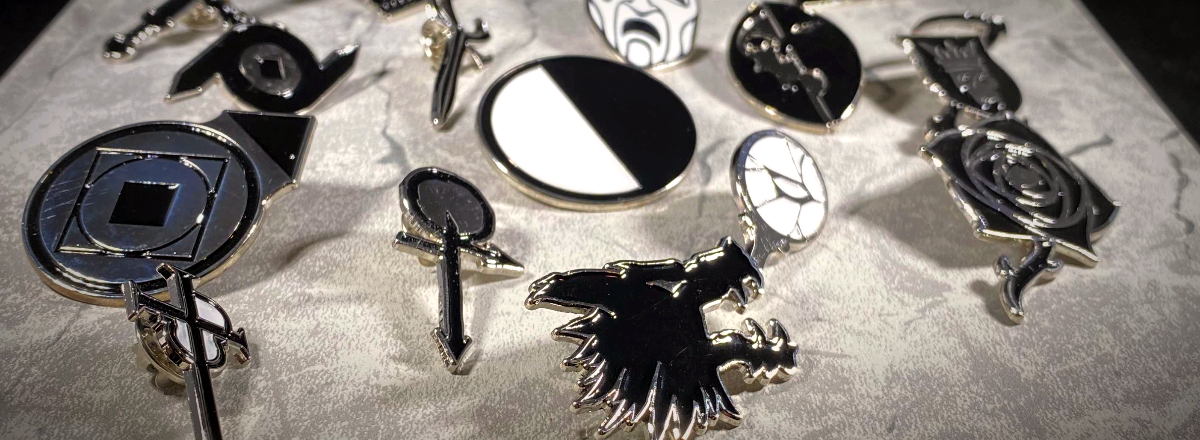“Well, sheriff, I’m not sure what happened to those teenagers neither, but you know how those out of town folks tend to get into all kinds of trouble. And there’s no need to poke around my barn – you’ve been there a hundred times at least. Now you take care now – Mama says hi, and she’ll see y’all in church this Sunday….”
— Jack J. Bratovitch, former suspect in the Haig County Massacre
Disciplines: Animalism, Potence, Vicissitude
Rarity: Uncommon
The Tzimisce pride themselves on breeding revenant families, though sometimes even their own twisted experiments get away from them. The Bratovitch are a perfect example of Tzimsce experimentation gone horribly awry. Elder Tzimisce only grudgingly accept their role in creating the Bratovitch, a revenant family which has managed to “earn’ the Embrace in large enough numbers to coalesce into its own bloodline. These twisted often horrific and crass vampires make some of the most fervent Loyalists in the Sabbat look highbrow. Often regarded as freaks of circumstance, the Bratovitch are no strangers to cannibalism, squalor, violence, and other vices often spurred on by their merciless tempers.
As a revenant family, the Bratovitch existed well before the first Anarch Revolt as terrifying hunters of Lupines and other denizens of the night. To assist in their hunts, the Bratovitch prided themselves on mastering the creation of hellhounds; ghastly and horrific creatures with vicious jaws, knotted muscle covered only by a seemingly thin layer of taunt flesh, and other vile modifications. They are the stuff of nightmares, with no concept of mercy or restraint, but to the Bratovitch they are creations of art that would make a Toreador weep tears of blood. In modern nights, most Bratovitch keep several hellhounds as guardians of person and property with simple instructions – protect and murder anyone who trespasses.
During the Anarch Revolt, at first the Bratovitch fought to protect their ancestral masters, but then betrayed Elder Tzimisce when the tide of war turned against the clan. After the Convention of Thorns, the Bratovitch chose to throw their lot in with the newly formed Sabbat sect, joining younger Tzimisce who were determined to throw off the shackles of the ancients. It was a fitting choice as the newly formed sect welcomed the bloodthirsty Bratovitch and their hellhounds, giving them free rein to hunt their enemies.
Quietly some Tzimisce hoped that with the Embrace of the Bratovitch family the bloodline would temper itself, focusing on survival instead of bloodshed. Instead, the twisted legacy of the family became more profound, manifesting itself as insatiable rage and bloodlust fueled by horrific feats of strength and the ability to rend flesh as carried over from the gifts of their former masters. The Tzimisce downplayed the difference in blood for quite some time, but with the introduction of the Beast and the insular nature of the family line, the Bratovitch more clearly defined themselves as their own entity.
In modern nights, nearly all Bratovitch are members of the Sabbat sect, as other sects tend to reject the inhumane nature of the bloodline. It is not surprising, however, that with the inclusion of the Order of Saint Blaise even the Sabbat are beginning to find the bloodline’s tendencies towards violence and depravity to be dangerous and unnerving.
Roleplaying Notes: The Bratovitch are monsters among monsters. While most are reclusive, Bratovitch neonates frequently are forced to interact with other vampires, keeping their families up to speed on what is going on in the outside world. These neonates are frequently the only members of the bloodline with a shadow of Humanity left in them; any others would send any sane person fleeing for their lives assuming they could outrun the hellhounds. Bratovitch Embrace solely from the family, and most Bratovitch revenants rarely encounter other human beings. To play a Bratovitch vampire is to play to the nature of the Beast, as the temper of the family in notorious to the point where Brujah antitribu pause at the rage of a Bratovitch on a bender. Instead of seeing it as a weakness, the Bratovitch use this rage to their advantage, focusing it to fuel their horrific acts and terrifying feats of strength.
Organization
The Bratovitch frequently organize themselves in extended family units or communes, with the most powerful of them acting as the head of the family. These familial units frequently operate as Sabbat packs and often share strong Viniculums to each other. In the rare instance that a member of the family is not a member of the Sabbat, they instead opt for several mutual blood bonds. One thing remains common, they will put family and often violence first.
Alternative Weakness
The Bratovitch are monsters at their very core, spurred on by hot tempers and lacking a concept of self-control. For the purposes of determining the need to test for frenzy or powers which interact with Beast Traits (such as Quell the Beast), they are always considered to have 1 Beast trait higher than their current total. For example, a Bratovitch with 2 Beast traits must test for frenzy as if she had 3 Beast traits. As this is a penalty and not an actual Beast trait, it cannot be reduced or eliminated by powers or effects such as spending time with someone who has the Animal Ken skill. This penalty has no effect on Morality loss; a Bratovitch who accumulates 4 Beast traits is not considered to have 5 through this penalty. Instead, she will lose a point of Morality when she accumulates a 5th Beast trait normally.
Bloodline: Bratovitch Merits
Local Legend (1 point merit)
Whether due to a skeptical local sheriff’s department, deep community ties, or general acceptance as part of the mythos of a region, local law enforcement is either extremely inept or very skeptical when it comes to you and your transgressions. Your murder victims are likely to be assigned alternate causes of death, and sheriff’s deputies are skeptical when it comes to witness accounts of you making it next to impossible to secure mortal resources against you. This benefit applies in urban as well as rural settings. You cannot be targeted by Indirect Influence Attacks (see MET: VTM, page 514, Indirect Influence Attacks), and nothing short of a flagrant Masquerade breach in front of numerous witnesses will generate consequence from the mortal or hunter realms. This benefit applies only to your home area; you lose this benefit if you travel outside your region.
Master of the Hounds (2 point merit)
You are a prominent hellhound keeper among the Bratovitch. If you purchase the Retainer background and designate that retainer as a hellhound (which must be an animal retainer), you gain two hellhound retainers instead of one. This an exception to the rule which requires each Retainer to have its own background. If you spend XP to raise the level of that Retainer, the increase applies to both animals. In addition, thanks to your family’s widespread breeding, if you lose a hellhound Retainer, you regain it one week later.
Become the Slasher (3 point merit)
Due to either an insulated upbringing, years of abuse, or an inhumane worldview, there is a particular activity that you view as a sin and which you cannot tolerate, for example, fornication, perfidy, or theft, which you seek to punish. Upon purchasing this merit, you may select a sin which cannot be changed. If you witness someone commit this sin, you may identify them as a sinner for the remainder of the night and receive benefits when acting against them. Whenever you enter a state of frenzy, you may identify anyone as a sinner, regardless of whether you have witnessed them commit a sin. Identifying someone as a sinner does not require an action but does involve an audible declaration toward the sinner.
Whenever you spend an action to move toward a sinner, you may take one additional step. Further, any physical attacks you make against the sinner gain the Accurate and Brutal Qualities (see MET: VTM, page 516).
In order to designate someone a sinner outside of a frenzy, you must personally witness the sinful act as it occurs; recordings or staged situations by your allies will not activate this bonus. The sin chosen must be an activity as opposed to one of the more classical sins; choosing “wrath” is too vague, but “animal abuse” is specific enough. Players and storytellers must exercise proper respect and consideration in adapting this merit for a character. Selecting an activity with the intent to target specific socio-ethnic groups or that are designed to target a real-life protected class are not acceptable and should not be permitted.

